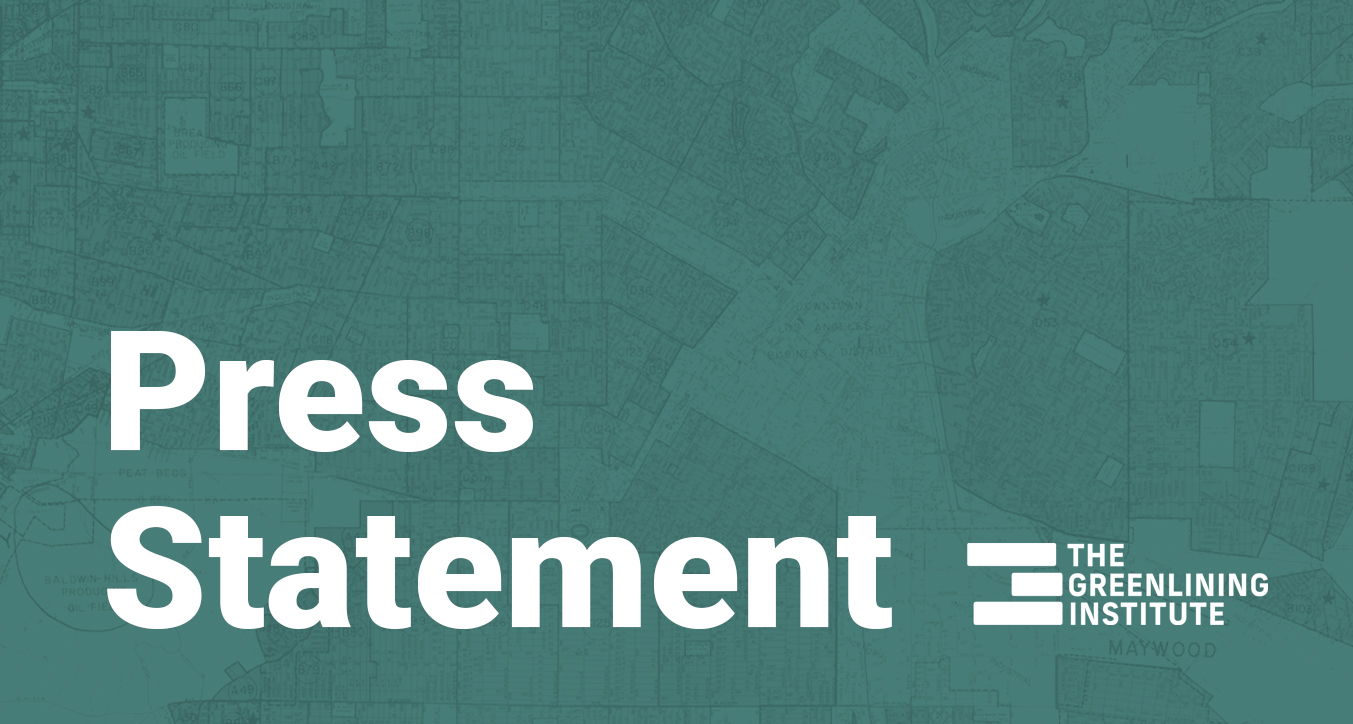New COVID-19 Relief Bill Has Major Gaps, Greenlining Institute Says

Media Contact
Danielle Bell
SENIOR PROGRAM MANAGER FOR MEDIA RELATIONS
media@greenlining.org danielle.bell@greenlining.orgMore Attention to Hard-Hit Communities of Color Still Needed
Contact: Bruce Mirken, Greenlining Institute Media Relations Director 415-846-7758 (cell)
OAKLAND, CALIFORNIA – With Congress apparently ready to pass a fourth COVID-19 relief bill, The Greenlining Institute said that while the measure reportedly contains needed additional funding for small businesses and hospitals, it still leaves critical priorities unaddressed.
“New data clearly show that Black Americans are dying from COVID-19 at disproportionately high rates, and Latino death rates appear elevated, too,” said Greenlining Institute Health Equity Program Manager Kelsey Lyles. “As the coronavirus shines a light on America’s pandemic of inequality, we must make sure that help reaches the communities in the most urgent need.”
Greenlining Economic Equity Director Adam Briones noted, “It is good news that small businesses will likely get an additional $350 billion, but we expect that this new money won’t last appreciably longer than the first round did. We still need to do more, and future legislation must specifically address the needs of small businesses in communities of color.”
This or future legislation must:
- Prioritize Funding for Clinics and Community Health Centers: Clinics and community health centers that serve low-income neighborhoods desperately need funding to stay in business and provide critical services. Many clinics have had to consolidate services and postpone routine care to prioritize emergency response, hindering their ability to be reimbursed by Medicare and operate at full capacity. In addition to funding hospitals, Congress must prioritize relief to community health centers to help them remain a lifeline for low income communities of color.
- Make COVID-19 Testing Free and Easily Accessible for Low-Income Communities: New data show Blacks and Latinos dying from COVID-19 at disproportionately high rates. Funding for testing should provide free testing in low-income neighborhoods of color to enable residents to seek care and stop the spread of the virus.
- Address the Needs of Small Businesses in Communities of Color: An informal Greenlining survey of California ethnic chambers of commerce found fewer than 10 businesses confirmed to have received federal relief money, and less than 20 have received approval and await funding. Targeting underbanked businesses in the current bill represents a good start, but an explicit focus on businesses of color will be needed in order to effectively reach businesses that need help the most.
- Collect Better Data and Target Immigrant-Owned Businesses. The government must collect data on the race and ethnicity of businesses operators who eventually receive Federal funds in order to ensure that non-White entrepreneurs are not unfairly excluded. In addition, Congress should require that all documents for these programs be produced in the five most common languages in each state to ensure that immigrant entrepreneurs have fair access to the funds their tax dollars help subsidize.
“Beyond improving the specific elements of this current bill, we still see a variety of unmet needs that future legislation must consider,” Briones said. “Families still need cash assistance, student debt must be wiped clean, and community nonprofits desperately need help. Instead of Band-Aids, we need to think big and reimagine everything in order to build an economy that works for all.”
To learn more about The Greenlining Institute, visit www.staging3.greenlining.org.



